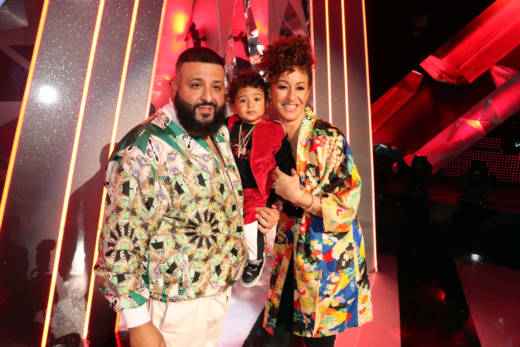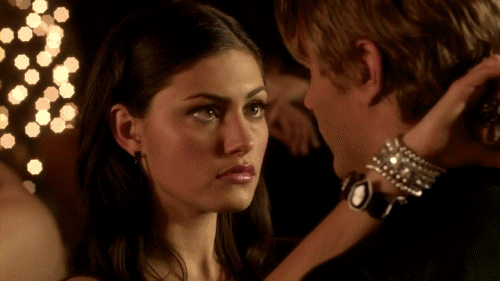The interview may have been three years old, but when DJ Khaled's 2015 comments about "never" performing oral sex on women recently re-emerged, the internet blew up in the most delightful way.
Why Won't DJ Khaled Ride the Downtown Bus?

Khaled asserted during the Breakfast Club interview that his position was related to traditional male-female roles, and that he showed his appreciation for women by buying them things. “It’s different rules for men," he said. "You gotta understand, we the king. There’s some things that y’all might not wanna do, but it got to get done. I just can’t do what you want me to do. I just can’t.”
The subsequent internet furor suggested that DJ Khaled was grossly out of touch with the sexual mores of the 21st century. But the truth of the matter is that a great many men share his views, and merely have enough sense to not admit it publicly.
In April 2016, The Canadian Journal of Human Sexuality reported that, in a study of 899 heterosexual university students, "more men (63 percent) than women (44 percent) reported receiving oral sex," even though "men were significantly more likely than women to report that giving oral sex was very pleasurable (52 percent vs. 28 percent)." To really hammer home the general unfairness, "no gender differences were found for overall pleasure ratings of receiving oral sex."

The disparity is a little odd, given how long humans have been practicing the act — the Karma Sutra documented cunnilingus in the third century, and you can bet it existed far before that. Even the Victorians were down — in the first half of the 1800s, Achille Jacques-Jean-Marie Devéria painted depictions that were performed by both men and women. Later that century, Paul Avril included it in his sizable series of erotic paintings.
So where does the stigma about tipping the velvet come from? The language DJ Khaled used was telling: he sees receiving oral sex as being "praised" by his partner. For him, this act is not a shared pleasure, it's a duty to be performed for the "King" of the household, to show gratitude. This reasoning, about who holds the power within the sex act, undoubtedly suggests that Khaled would see returning the favor as somehow an act of subservience. Clearly, there is a fear that to submit to pleasuring a woman would somehow make him less of a man.
If you buy into these kinds of old hetero gender-role stereotypes, it stands as a bit of a no-brainer that, in the midst of receiving, many men believe they hold all of the power. The irony is, most women who enjoy giving oral sex feel the exact same way. "There’s something that seems so submissive about it," one BJ enthusiast wrote for Thought Catalog in 2016, "but in reality, you’re the one in control of his pleasure. [When he] is in full on pleasure mode... it’s all because of me."
A 2013 Guardian article about movie representations of cunnilingus suggests that pop culture at large only perpetuates outmoded ideas about heterosexual power dynamics: "In Hollywood, if a woman receives oral sex, she's a Madonna; if she gives it, she's a whore."
Not that women in mainstream film are seen on the receiving end a great deal. There are exceptions — Pulp Fiction, Away We Go, Monster's Ball, pretty much anything by Jane Campion — but remember, too, that scenes depicting men heading downtown were cut from Basic Instinct and Charlie Countryman. Plus they were the reason Blue Valentine got an NC-17 rating and Two Girls and a Guy got slapped with an R. Boys Don't Cry was also forced by the MPAA to cut an oral sex scene. Movies seem to get away with more if the cunnilingus has a comedic element. (See: American Pie 2, and Scary Movie, in which a guy goes down on Anna Faris and, after three seconds, starts dry heaving — not exactly helpful.)

TV has, in all fairness, made great strides forward in the oral stakes recently, thanks to scenes in Girls, Orange is the New Black, House of Cards, The Good Wife, Grey’s Anatomy, Nashville and Scandal — but there is always room for improvement. The stilted progress is in no way surprising if you consider that, as recently as 2010, a Kotex tampon commercial was banned for merely using the word "vagina."
A study published in December 2007 in The Journal of Infectious Diseases suggested that relationship status plays a role in the oral practices of straight males. A positive correlation was found between the number of sexual partners men had in their lifetime, and their willingness to give oral sex. Race also apparently played a role, with "a higher percentage of whites than blacks or Hispanics report[ing] giving or receiving oral sex."
Music is perhaps the easiest arena in which to broach the subject. All the way back in 1988, the Yeastie Girlz demanded "You Suck." In '92, Madonna sang about "dining in and eating out." In '93, Bikini Kill went in pursuit of what was euphemistically referred to as "Sugar." Since then, we've had disco hits about it (Goldfrapp's "Twist"), soul jams from women in their sixties (Denise Lasalle's "Lick it Before You Stick It" is amazing), and an array of no-nonsense hip-hop. From Missy Elliott's request that you "eat it like a vulture" and Lil Kim's multiple references in at least three songs, to, most legendarily of all, Khia's "My Neck, My Back."
In the end, we can only hope that Lil Wayne — who's been working his butt off to big up the joy of orally pleasuring women for a decade now — has a chat with his friend and sometime collaborator DJ Khaled soon. And Lil Waynes all over the world need to start talking openly to their scaredy cat friends who won't go down — a 2015 Cosmopolitan survey found that the majority of orgasms experienced by women happened when they were pleasuring themselves. Perhaps the 67 percent of women who admitted to faking orgasms in that survey wouldn't have had to do so if pleasuring women wasn't so often seen as a threat to masculinity.

